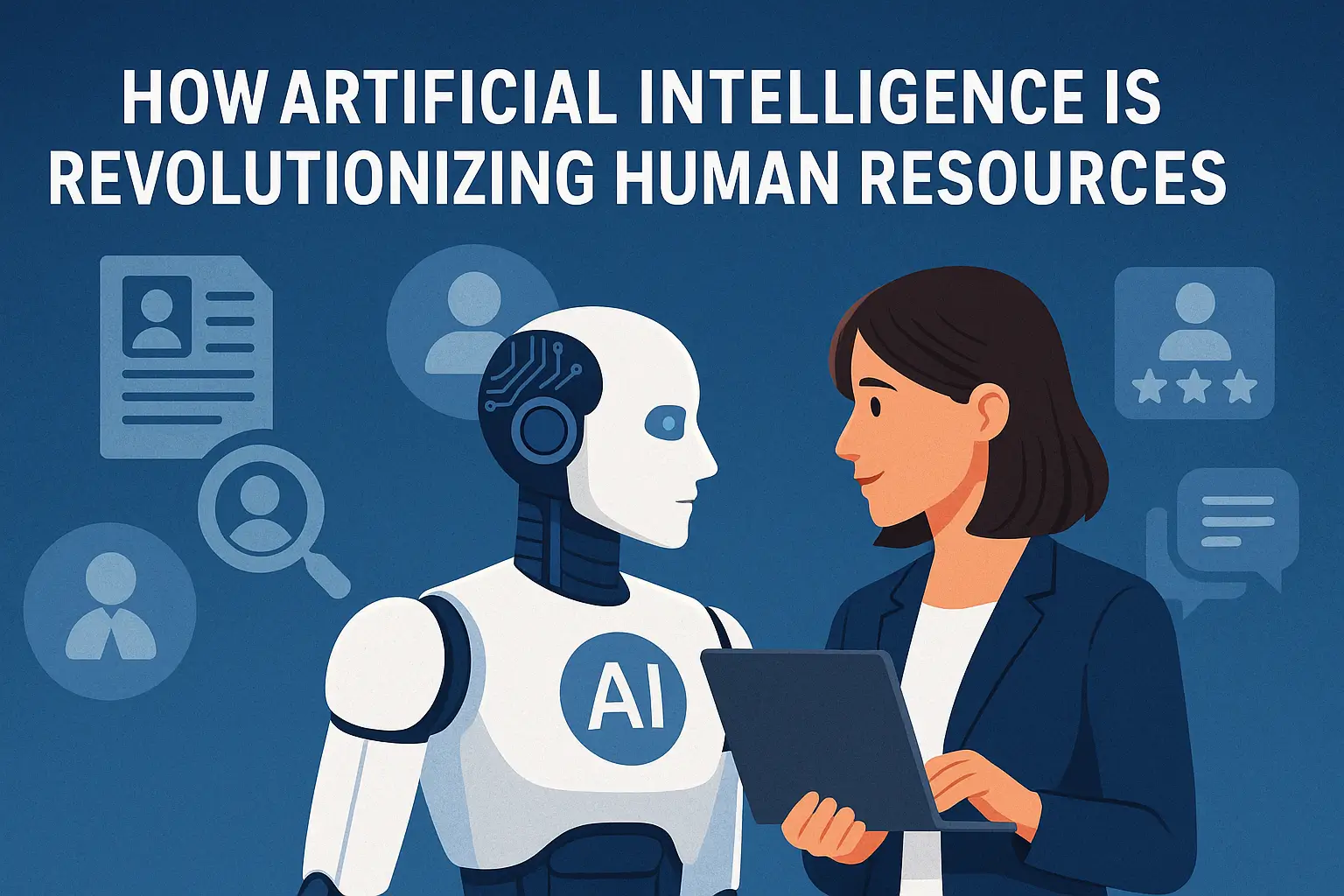The field of Human Resources (HR) is experiencing a major transformation, thanks to Artificial Intelligence (AI). What was once a manual, time-consuming function is now being enhanced by intelligent systems that automate repetitive tasks, improve hiring accuracy, and support employee engagement. AI is helping HR professionals become more strategic and data-driven than ever before.
In this article, we’ll explore how AI is reshaping HR practices across recruitment, performance management, employee support, and more.
AI in Recruitment and Talent Acquisition
Finding and hiring the right talent is one of the most critical and challenging HR functions. AI simplifies and strengthens this process through:
1. Resume Screening
AI systems analyze thousands of resumes in seconds by:
- Identifying key skills and qualifications
- Matching applicants to job descriptions
- Ranking candidates based on relevance
- Highlighting red flags or inconsistencies
This reduces bias and increases the efficiency of the shortlisting process.
2. Chatbots for Candidate Interaction
AI chatbots handle initial communication with applicants by:
- Answering frequently asked questions
- Collecting candidate information
- Scheduling interviews
- Providing updates on application status
This improves candidate experience and reduces response delays.
3. Predictive Hiring
AI can analyze past hiring data to:
- Identify patterns among successful employees
- Predict candidate success and retention
- Recommend tailored interview questions
- Flag potential cultural or role mismatches
This ensures better hiring decisions and reduces turnover.
AI in Onboarding and Training
The onboarding process sets the tone for an employee’s journey. AI improves onboarding by:
- Automating documentation and compliance tasks
- Personalizing welcome messages and training schedules
- Providing virtual orientation tours and tutorials
- Answering common HR questions via virtual assistants
New employees can integrate smoothly, boosting early engagement and productivity.
AI in Employee Engagement and Retention
Happy employees are more productive and loyal. AI supports employee satisfaction by:
1. Sentiment Analysis
AI tools monitor internal communications and surveys to gauge employee sentiment. This helps HR:
- Detect dissatisfaction early
- Identify engagement trends
- Pinpoint areas for improvement
2. Personalized Learning and Development
AI-powered learning platforms recommend training modules based on:
- Individual career goals
- Job role requirements
- Skill gaps and performance data
This promotes continuous learning and career growth.
3. Real-Time Feedback Systems
AI systems gather feedback continuously and provide:
- Immediate performance insights
- Recognition alerts to managers
- Suggestions for coaching and support
This creates a culture of ongoing feedback instead of annual reviews.
AI in Performance Management
AI enhances performance evaluation with:
- Objective, data-driven metrics
- Customized KPIs based on role and goals
- Real-time dashboards for tracking progress
- Early warning systems for underperformance
This results in fairer evaluations and more targeted development plans.
AI in Workforce Planning and Analytics
AI helps HR teams make strategic decisions by analyzing workforce data to:
- Forecast talent needs
- Identify high-potential employees
- Evaluate diversity and inclusion metrics
- Optimize workforce allocation
HR leaders can align people strategies with business goals more effectively.
AI in Benefits and Employee Support
AI streamlines HR service delivery by:
- Recommending benefits based on employee profiles
- Managing PTO requests and benefits enrollment
- Providing virtual HR assistants for policy queries
- Detecting signs of burnout or health risks through behavioral analysis
These tools improve support while reducing administrative burden.
Benefits of AI in Human Resources
1. Increased Efficiency
AI automates repetitive tasks, allowing HR professionals to focus on strategy and people.
2. Better Hiring Decisions
With predictive analytics and unbiased screening, AI improves candidate quality and fit.
3. Enhanced Employee Experience
AI provides personalized support, learning, and feedback, improving job satisfaction and engagement.
4. Cost Savings
Automated processes reduce HR operational costs and improve workforce utilization.
5. Data-Driven Insights
HR teams can access actionable analytics to guide decisions on hiring, retention, and development.
Challenges and Ethical Considerations
Despite its advantages, AI in HR presents important ethical and operational challenges:
1. Bias and Fairness
If not carefully managed, AI systems may perpetuate or even amplify existing biases in hiring and evaluation.
2. Privacy and Data Security
AI systems collect sensitive employee data. Ensuring privacy and ethical data use is critical.
3. Transparency
Employees may be uncomfortable with automated evaluations or surveillance. Transparent communication is essential.
4. Human Touch
AI should enhance—not replace—human connection in HR. Empathy and personal relationships remain vital.
5. Technology Adoption
HR teams must be trained to use AI tools effectively and understand their limitations.
Future Trends in AI for HR
Looking ahead, we can expect:
- Emotion AI to assess engagement through facial expressions or tone
- AI career coaching based on personality and aspirations
- AI-driven diversity hiring tools
- Wearable integration to track wellness and productivity
- AI-powered internal mobility platforms for career development
These trends will help HR move from reactive to proactive talent management.
Final Thoughts: Humanizing HR with AI
Artificial Intelligence is transforming HR into a more agile, efficient, and data-driven function. But at its core, HR is about people—and AI should be used to support, not replace, the human elements of empathy, connection, and care.
By blending AI innovation with human insight, HR professionals can create workplaces that are not only smarter—but also more inclusive, supportive, and fulfilling for everyone.
